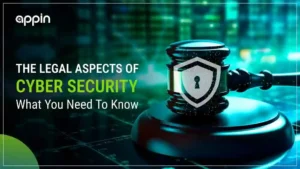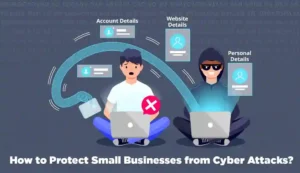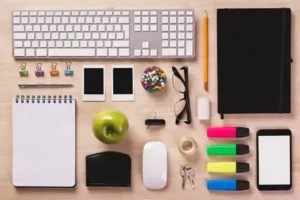Legal Tips & Practical Advice for Everyday Security

In today’s world, ensuring Everyday Security is more important than ever. With all the tech we’re glued to and the endless stream of personal data floating around, it’s like living in a glass house. Sure, we can see out, but so can everyone else. And, well, that’s not always a good thing. I’ve learned the hard way how easy it is to let basic security slip through the cracks, only to regret it later. Anyway, here’s the kicker: securing both your digital and physical spaces requires a combination of being legally savvy and just being smart with your everyday choices. So, let’s dive into some practical steps and legal tips that could save your skin—or at least your data—down the road.
Know Your Legal Rights to Everyday Security
First things first: you gotta understand your rights. Trust me on this—if you don’t know what’s yours, it’s way easier to lose it. And when it comes to your privacy, data, and physical security, knowing what’s legal is the first line of defense. In the digital age, your rights can be as slippery as wet soap, but thankfully, some laws are pretty clear.
Take the General Data Protection Regulation (GDPR) in Europe, for instance. If you’re in the EU, your personal data is yours, and anyone who wants to collect it needs to ask nicely—just like when you borrow your friend’s favorite sweater. If they don’t follow the rules, they can face some pretty hefty fines.
And then there’s the California Consumer Privacy Act (CCPA). The golden state isn’t just about great weather and terrible traffic. They’ve got one of the strongest data protection laws in the U.S., giving you control over how companies handle your personal information. Think of it like a digital bouncer keeping out unwanted guests.
These laws are designed to give you control over how your data is handled. I mean, if I’m sharing a picture of my dog, Taco, dressed as a hotdog on Instagram, I expect that to stay between me and my followers—not turned into a targeted ad for dog costumes on Facebook. The point is, being aware of your rights can make a world of difference when it comes to securing your personal information.
Practical Steps for Securing Your Digital Life
Now, let’s talk about securing your digital life—because, let’s be real, our phones are basically tiny vaults of our secrets. One day it’s your grocery list, and the next, it’s your entire work calendar, family photos, and passwords all tucked inside. So, yeah, we need to treat them like the goldmine they are.
1. Use Strong, Unique Passwords
Here’s a no-brainer: don’t use “password123” for your accounts. I know, I know—how many times have you heard that? But you’d be surprised how many people still do. You wouldn’t leave your front door wide open, right? So don’t leave your accounts vulnerable to cybercriminals.
Pro tip: don’t try to remember a different password for every site—use a password manager. It’s like having a personal bodyguard for your digital identity. And remember: a strong password isn’t just about using uppercase, lowercase, numbers, and symbols (though it is definitely about that). Try using a passphrase—a quirky, memorable sentence like “TacoTuesdayIsLife!” Trust me, no hacker wants to spend hours trying to crack that one.
2. Enable Two-Factor Authentication (2FA)
So, you’ve got your strong passwords, but here’s the thing: hackers are sneaky. They’re like the raccoons of the cyber world—showing up when you least expect them. That’s where two-factor authentication (2FA) comes in. It’s like a double lock on your front door. Even if someone manages to crack your password, they still can’t get in without your phone or an email confirmation.
The extra step is a little annoying sometimes, but hey, I’d rather deal with that than a hacked account. Plus, most services make it easy. Gmail, Facebook, and even your Netflix account (which, honestly, is probably more valuable than your bank account at this point) offer it.
3. Regularly Update Software and Devices
There’s nothing like the feeling of finally sitting down to relax, only for your phone to go, “Hey, I need to update!” Ugh. I get it—updates are annoying. But they’re also necessary. Think of it like fixing the door lock after a break-in. Software updates patch security holes. So when your computer asks if you want to install that update, the answer should always be “yes.”
Don’t let your devices get stuck in the past. Keep everything updated—your phone, laptop, and yes, even your router. If you’re wondering, “Wait, my router?”—yeah, routers can get hacked too. It’s one of those “forgotten” security weak points.
4. Be Cautious About Public Wi-Fi
Public Wi-Fi is like the sketchy guy at the party who you don’t know but who keeps offering you drinks. Do you trust him? Probably not. Public Wi-Fi is a goldmine for hackers. It’s like handing them an open invitation to your personal info.
So, next time you’re sipping on a latte at a café and thinking of checking your bank balance over the Wi-Fi, remember: hackers can be lurking. If you absolutely must use it, invest in a VPN (Virtual Private Network). It’s like putting a thick, invisible wall around your internet connection—no one’s getting through.
Physical Security Measures for Everyday Protection
Alright, enough about the digital stuff—let’s talk about protecting your actual life. Your physical security. Sure, it might seem old-school, but trust me, burglars don’t care about your awesome password. They just care about what’s inside your house.
1. Install Quality Locks and Security Systems
My first house came with the most ancient lock on the door. I’m talking old-school, rusty key-and-latch type deal. I didn’t think much of it until my neighbor’s house was broken into. Fast forward a few weeks, and I swapped out the lock for something a little more 21st century. Smart locks, deadbolts, and security cameras aren’t just for tech geeks anymore—they’re for everyone who wants to sleep at night.
If you’re serious about protecting your stuff, get a security system. There’s no shame in it. It’s like having a digital watchdog. Plus, you can usually monitor everything from your phone, which is pretty cool, right?
2. Secure Personal Items
I’ll be the first to admit it—there was that one time I left my wallet in the backseat of my car while running into a store for “just a minute.” Turns out, “just a minute” was plenty of time for someone to break in and take it. Learn from my mistakes: Never leave valuables visible in your car. And don’t forget to lock the damn doors, either.
3. Know Your Legal Rights to Self-Defense
Self-defense is another area where knowing your rights can save you in an emergency. Depending on where you live, you might be legally allowed to defend yourself if someone’s trying to harm you. But—and here’s the kicker—there’s a line between protecting yourself and using excessive force.
Be sure to know your local laws. Because, trust me, you don’t want to go swinging a frying pan at someone only to find out it’s illegal in your state.
4. Establish an Emergency Plan
Have a plan. Seriously. If you’ve never sat down and thought about what you’d do in an emergency—whether it’s a fire, a storm, or a break-in—now’s the time to get on it. My family and I did an emergency drill once, and it was chaotic. But at least we all knew where the flashlights were.
Knowing who to call and where to meet up in an emergency can make a huge difference.
Stay Informed and Educated
Lastly, staying informed is key. Laws change. Security risks evolve. You know that feeling when you finally figure out how to set your alarm clock, but then you realize it has three more buttons you’ve never touched? Yeah, that’s security. Keep learning. Keep adapting.






